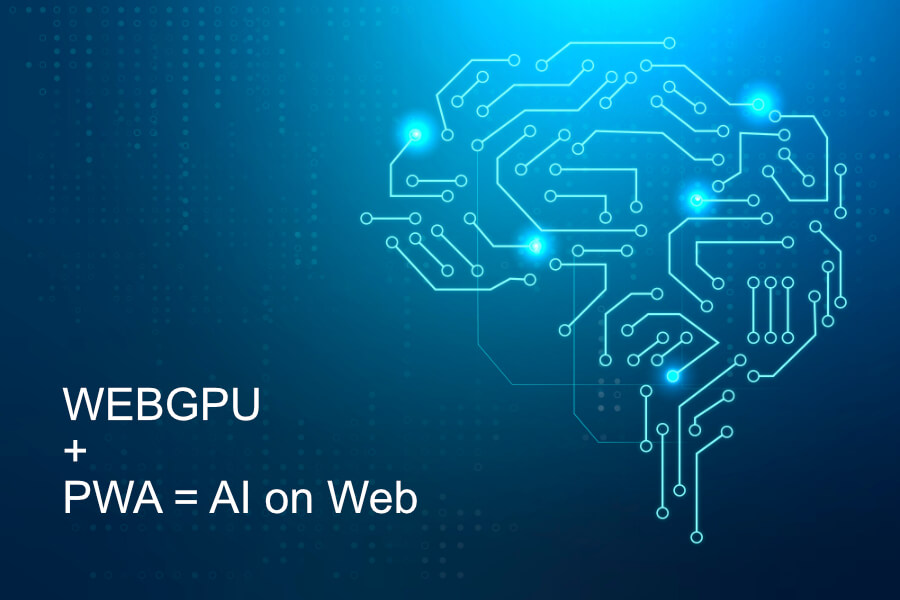
One significant development on the horizon is the integration of AI into web browsers through a technology called WebGPU. With WebGPU, AI is poised to become native to the web, opening up a world of possibilities for AI-powered web applications.
WebGPU is a low-level, high-performance graphics and compute API (Application Programming Interface) for the web. It provides a modern, efficient, and cross-platform solution for accessing graphics and compute capabilities of modern GPUs (Graphics Processing Units) from web browsers. While its primary focus is on graphics rendering, WebGPU’s compute capabilities have vast implications for AI applications on the web.
Currently only supported on Chrome, this is a really interesting advancement which would be really advantageous for PWA.
Traditionally, AI-intensive tasks have been performed on the server side, requiring a constant flow of data between the client and server. However, with the advent of WebGPU, AI processing can now occur directly on the client’s device, leveraging the immense power of local GPUs. This shift has significant advantages, including reduced latency, improved privacy, and enhanced user experience.
One of the key benefits of WebGPU is its performance. By leveraging the full potential of modern GPUs, AI computations can be executed at lightning-fast speeds directly within the browser. This capability is crucial for real-time AI applications, such as image and speech recognition, natural language processing, and recommendation systems. Users can experience near-instantaneous responses, eliminating the need for round trips to the server and enabling highly interactive and immersive AI experiences.
Another advantage of WebGPU is its portability. As a web standard, WebGPU is designed to work across different platforms and devices, eliminating the need for developers to build and optimize AI models for specific operating systems. This portability enables AI-powered web applications to reach a broader audience, regardless of the user’s device or platform. Whether it’s a desktop computer, laptop, tablet, or even a mobile phone, users can benefit from AI capabilities seamlessly integrated into their web browsing experience.
Privacy is a growing concern in today’s digital landscape. With WebGPU, AI processing takes place locally on the client’s device, reducing the need to transmit sensitive data to remote servers. This decentralized approach ensures greater privacy and data security for users, as their personal information remains within the confines of their own device. Furthermore, WebGPU enables developers to build AI models that respect user privacy by performing computations locally, without requiring data to leave the device.
The integration of AI with web browsers through WebGPU opens up endless possibilities for developers and users alike. Web developers can now harness the power of AI to create innovative applications without the need for complex server infrastructure or specialized hardware. Whether it’s real-time object recognition in an augmented reality experience, intelligent chatbots, or personalized recommendations, the web becomes a playground for AI-driven creativity.
From a user perspective, AI becomes an integral part of their web experience. Imagine a web search that understands your preferences and provides tailored results, or a language translation tool that seamlessly converts foreign text in real-time. With WebGPU, AI becomes an inherent feature of web browsers, empowering users with intelligent and personalized interactions.
While WebGPU is still a relatively new technology, its potential impact on the web and AI cannot be underestimated. As it gains wider adoption and matures, we can expect a proliferation of AI-powered web applications that leverage the full capabilities of GPUs directly within the browser. The convergence of AI and the web through WebGPU brings us one step closer to a future where intelligent, immersive, and privacy-preserving AI experiences are the norm.

